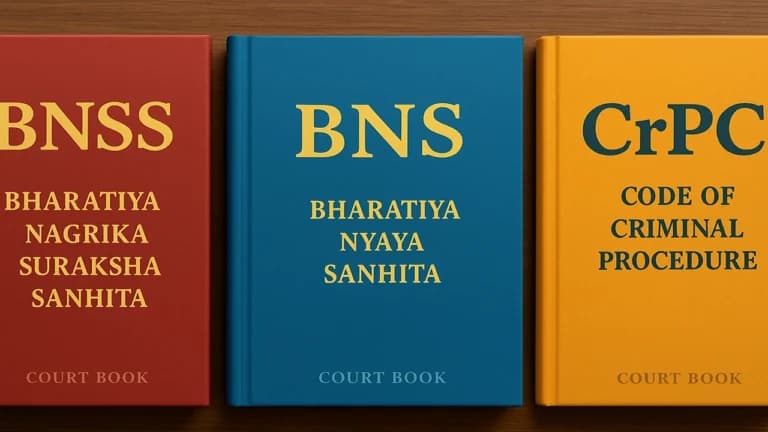In a significant observation aimed at curbing unnecessary arrests, the Andhra Pradesh High Court, on Thursday, reminded the State Police to adhere strictly to established Supreme Court guidelines. Justice Dr. Y. Lakshmana Rao was hearing a petition filed by K. Vinayaka, who sought pre-arrest bail in connection with a case registered under the newly introduced Bharatiya Nyaya Sanhita (BNS) and Bharatiya Nagarik Suraksha Sanhita (BNSS).
The bench, while disposing of the petition, emphasized the importance of following the procedure laid down in Arnesh Kumar vs State of Bihar and reiterated again in Md. Asfak Alam vs State of Jharkhand.
Background
The case stems from Crime No. 101 of 2025, registered at the Penugonda Police Station in Sri Sathya Sai district. The allegations against the petitioner, who is listed as Accused No. 1, invoke Section 318(4) of the Bharatiya Nyaya Sanhita - an offence carrying a maximum imprisonment of less than seven years.
Appearing for the petitioner, Advocate P. Narasimhulu argued that his client feared arbitrary arrest despite the relatively minor nature of the offence. He urged the court to grant protection under Section 482 of the BNSS, which allows the High Court to intervene to prevent abuse of the legal process.
Representing the State, the Public Prosecutor maintained that the investigation was at a crucial stage and that police were proceeding according to law.
Court's Observations
Justice Rao noted that the offence alleged against the petitioner did not warrant immediate or mechanical arrest.
"When the law itself provides sufficient safeguards, it is the duty of the police to respect the liberty of the individual," the judge observed, adding that arrests should never be made as a matter of routine.
Quoting directly from the Arnesh Kumar decision, the bench reiterated:
"Our endeavor is to ensure that police officers do not arrest the accused unnecessarily and Magistrates do not authorize detention casually and mechanically."
The Court also referred to the Supreme Court’s checklist approach, directing that every police officer must record reasons before making an arrest and submit the same to the Magistrate for review. If no arrest is made, the decision must be sent to the Magistrate within two weeks, the judge reminded.
Referring to the Md. Asfak Alam ruling, Justice Rao underlined that the Arnesh Kumar safeguards are not confined to dowry-related offences but apply to all cases where the punishment is less than or up to seven years.
Legal Context Simplified
The Bharatiya Nyaya Sanhita (BNS) and Bharatiya Nagarik Suraksha Sanhita (BNSS) are part of India’s new criminal law framework, which replaced the old Indian Penal Code and the Code of Criminal Procedure.
Section 35(3) of the BNSS, which corresponds to the earlier Section 41-A of CrPC, requires the police to issue a notice of appearance before arresting a person in cases of lesser gravity.
This provision aims to reduce custodial arrests and promote due process, ensuring that citizens are not deprived of liberty without lawful justification.
Decision
After hearing both sides, the High Court did not grant outright anticipatory bail but instead issued a protective direction to the police. Justice Rao instructed the Investigating Officer to strictly follow the procedure under Section 35(3) of the BNSS (previously Section 41-A of the CrPC).
The Court further directed that the guidelines in Arnesh Kumar and Md. Asfak Alam must be complied with in letter and spirit. The petitioner, meanwhile, was told to extend full cooperation to the ongoing investigation.
In essence, the Court struck a balance - protecting individual liberty while allowing the investigation to continue unhindered. The matter, therefore, stands disposed of, with a stern reminder to the State machinery: lawful procedure cannot be replaced by police discretion.
Case Title: K. Vinayaka vs The State of Andhra Pradesh
Case Number: Criminal Petition No. 10919 of 2025
Date of Judgment: 30 October 2025 (Thursday)
Counsel for Petitioner: P. Narasimhulu, Advocate
Counsel for Respondent: Public Prosecutor















